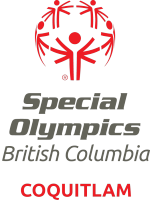
History of the Special Olympics
Special Olympics was inspired by the discoveries of Dr. Frank Hayden's research at the University of Toronto. He demonstrated that, given the opportunity, persons with an intellectual disability could become physically fit and acquire the physical skills necessary to participate in sports.
The first sports competition that was organized under the Special Olympics banner was held at Soldier Field in Chicago, Ilinois in 1968. It was founded by the Joseph P. Kennedy Foundation and Eunice Kennedy Shriver. A group of 12 students from Toronto’s Beverly School represented Canada at Soldier’s Field, competing in floor hockey. They called themselves the “Toronto Maple Leafs”.
The very first Special Olympics national competition was held one year later on June 9, 1969 in Toronto, Ontario. It attracted 1400 individuals with intellectual disabilities from towns and cities all across Canada, competing in Athletics, Aquatics, and Floor Hockey. Harry “Red” Foster worked tirelessly to bring the Special Olympics sports movement into Canada. Harry is a Canadian Legend Broadcaster, Advertising Executive, and Philanthropist.
Today, over 45,000 athletes with an intellectual disability participate in Special Olympics in Canada and it has grown to serve over 4.9 million athletes in more than 170 countries worldwide.
In 1980, Special Olympics BC was established as an accredited chapter of Special Olympics in Canada. There are currently more than 4,600 SOBC athletes in 55 communities offering Special Olympics programs in BC. For more than 35 years, Special Olympics and thousands of dedicated volunteers across the province have changed the lives of athletes forever.
All positions are staffed by volunteers, who fill roles as local executive, organizers, coaches, and event personnel. In British Columbia, Special Olympics is a non-profit organization.
